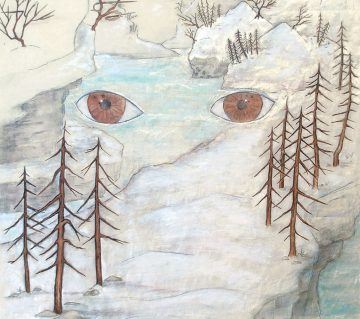Claire Jarvis in Bookforum:
 In the title essay of her new collection, Rachel Cusk describes something she calls being sent to “Coventry.” This, as it is for many English families, is her family’s term for putting someone beyond the pale, for thrusting an offender out into silence. Her parents “send her to Coventry” when she does something they dislike, when she has slighted them or failed them in some way. “Sometimes,” Cusk writes,
In the title essay of her new collection, Rachel Cusk describes something she calls being sent to “Coventry.” This, as it is for many English families, is her family’s term for putting someone beyond the pale, for thrusting an offender out into silence. Her parents “send her to Coventry” when she does something they dislike, when she has slighted them or failed them in some way. “Sometimes,” Cusk writes,
It takes me a while to notice that my parents have sent me to Coventry. It’s not unlike when a central-heating boiler breaks down: there’s no explosion, no dramatic sight or sound, merely a growing feeling of discomfort that comes from the gradual drop in temperature that one might be surprisingly slow—depending on one’s instinct for habituation—to attribute to an actual cause.
Her parents stop talking to her; they pretend she doesn’t exist. Since she was a child, Cusk writes, “I have been terrified of Coventry, of its vastness and bleakness and loneliness, and of what it represents, which is ejection from the story.” But the particular instance of emotional exile the essay describes is different. She is now an adult, with two children and a second marriage. This time, the exile begins to feel like a safe place, a place she wants to remain; once one is in Coventry, one no longer has to fear being sent there, for starters. At the essay’s end, Cusk’s parents thaw, and make an approach, but the distance has become comfortable: “I don’t want to leave Coventry. I’ve decided to stay.”
Cusk’s decision to cut ties with her parents has a wider symbolic resonance: Choosing to remain in Coventry means separating herself from a life of natural-seeming coherence, refusing to remain within the implied security that belonging brings. “Coventry,” like many of Cusk’s essays about her life, is also about writing and the conditions under which it takes place. Living in this “place of fragments and ruins” holds a special power for an author: the power to see the story from the outside. To become a truth-teller, Cusk seems to say, one must be willing to dislocate oneself from the comfortable aspects of sociable life, of family, marriage, or friendship, and risk opprobrium by describing the world as it really is.
More here.
